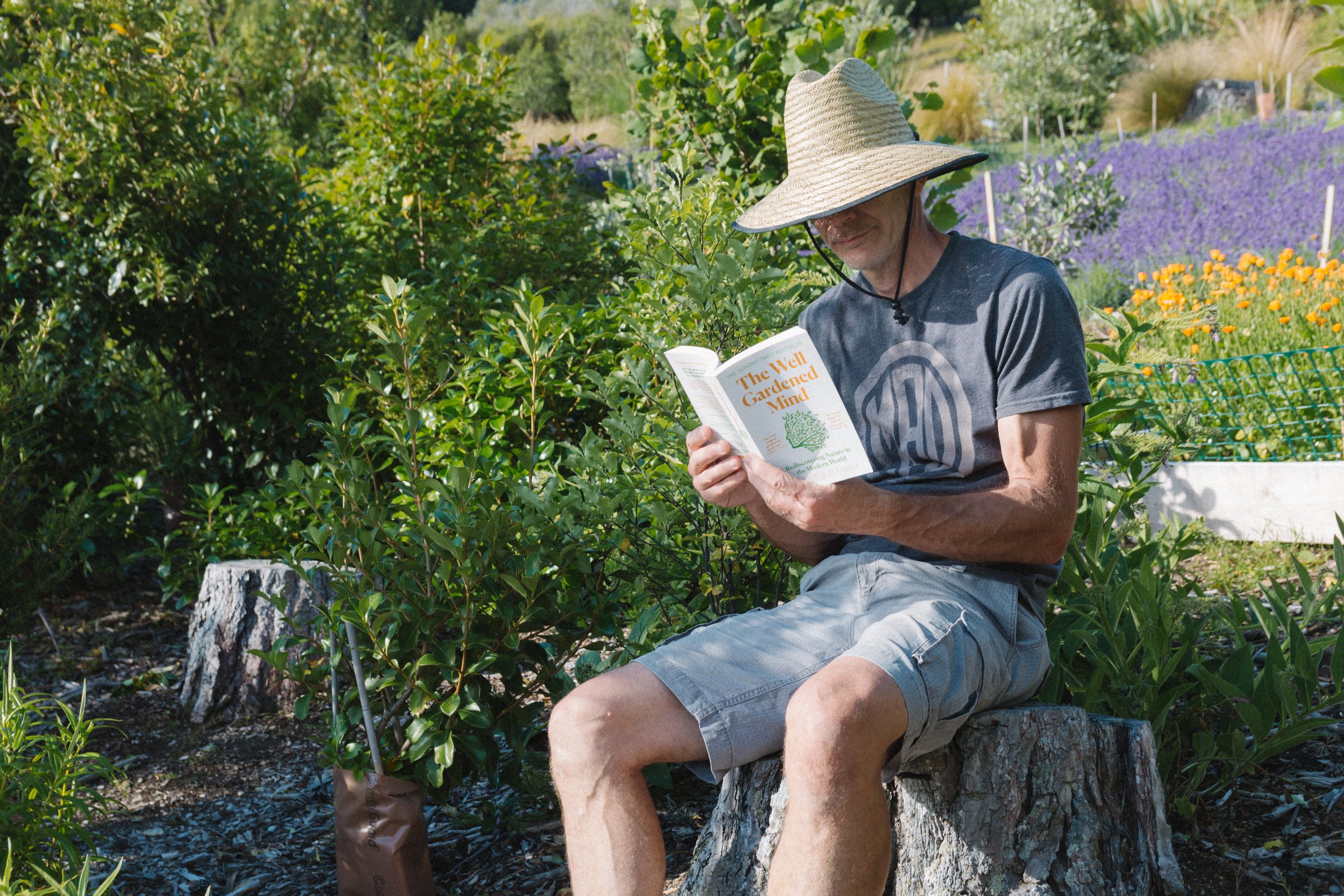Book Review: The Well Gardened Mind
The Well Gardened Mind by Sue Stuart-Smith
The Well Gardened Mind is about more than the therapeutic uses of gardens and helps us understand why gardens and nature are beneficial for our wellbeing. This well researched book is well worth a read and reminds us that we are part of nature and that we need to cultivate our connection in order to thrive.
Sue Stuart-Smith, who is a psychiatrist and psychotherapist, has a unique view of gardening as more than just a physical space, it is also a mental space, one that “gives you quiet, so you can hear your thoughts. When you work with your hands in the garden, weeding or clipping, you free your mind to work through feelings and problems. By tending your plants, you are also gardening your inner space and, over time, a garden is woven into your sense of identity, becoming a place to “buffer us when the going gets tough””.
Based on extensive research and interviews, The Well Gardened Mind traces the positive therapeutic benefits of gardens and gardening. With examples from patients in hospitals and care facilities, recovering war veterans to prisoners who are allowed to participate in gardening programs as well as the effects of gardens on people with mental, intellectual, and physical disabilities. She allows us to see the common impact of gardens and gardening on all of humanity.
The Well Gardened Mind also explores the impact of gardens on cultural history and archaeology. For example, she highlights how the Māori closely associated cultivation of the earth with their core beliefs, while the European colonists viewed agriculture strictly as a utilitarian, economic undertaking. The Māori’s “intimate relationship between cultivating the earth and religion would have been anathema to the colonialists”. “The desacralization of the natural world brought with it the idea that humans can control nature, and gave rise to a loss of respect for the earth, a deep misapprehension that continues to plague us today.”
Stuart-Smith highlights the imbalance of our frenetic culture and our need to bridge the gap between “’doing’ on the one hand and ‘being’ on the other.” Our active world demands we be highly productive; it values and rewards only productivity. The value of being-in-the-world, taking the time simply to observe and take care of the intangible aspects of living-in-the-world, simply isn’t recognized and, if it is, usually is judged a waste of time, “unproductive.” This mindset is something I am certainly guilty of and relate to.
The Well Gardened Mind reminds us that we have separated ourselves from nature to such an extent that we forget we are part of a vast and living continuum. One of my favourite quotes in the book relates our disconnection from nature and is I think a guide to live by; “the pace of life is the pace of plants”. And what about this: “As we cultivate the earth, we cultivate an attitude of care towards the world.”
The book makes the case that gardens and gardening value to us is both real and in our minds. “The garden is an imagined place as much as a real one. People dream about their gardens and make plans for them. Even tending a window box can open a door onto another world. Gardening is what happens when two creative energies meet—human creativity and nature’s creativity”.
Most of know that being present in gardens or gardening can be a way of calming down and clearing the anxiety and clutter in our minds. Certainly, when I am out in Black Teal Bay just weeding, maybe planting or tidying up the lavender with a gentle breeze on my face or the birds cheerfully singing my thoughts clear and as I slow down new ideas and perspectives (…about anything) often meander into my head. As Stuart-Smith says “at times like these, it feels as if alongside all the physical activity, I am also gardening my mind.”
@Black Teal Bay book rating: 8/10

